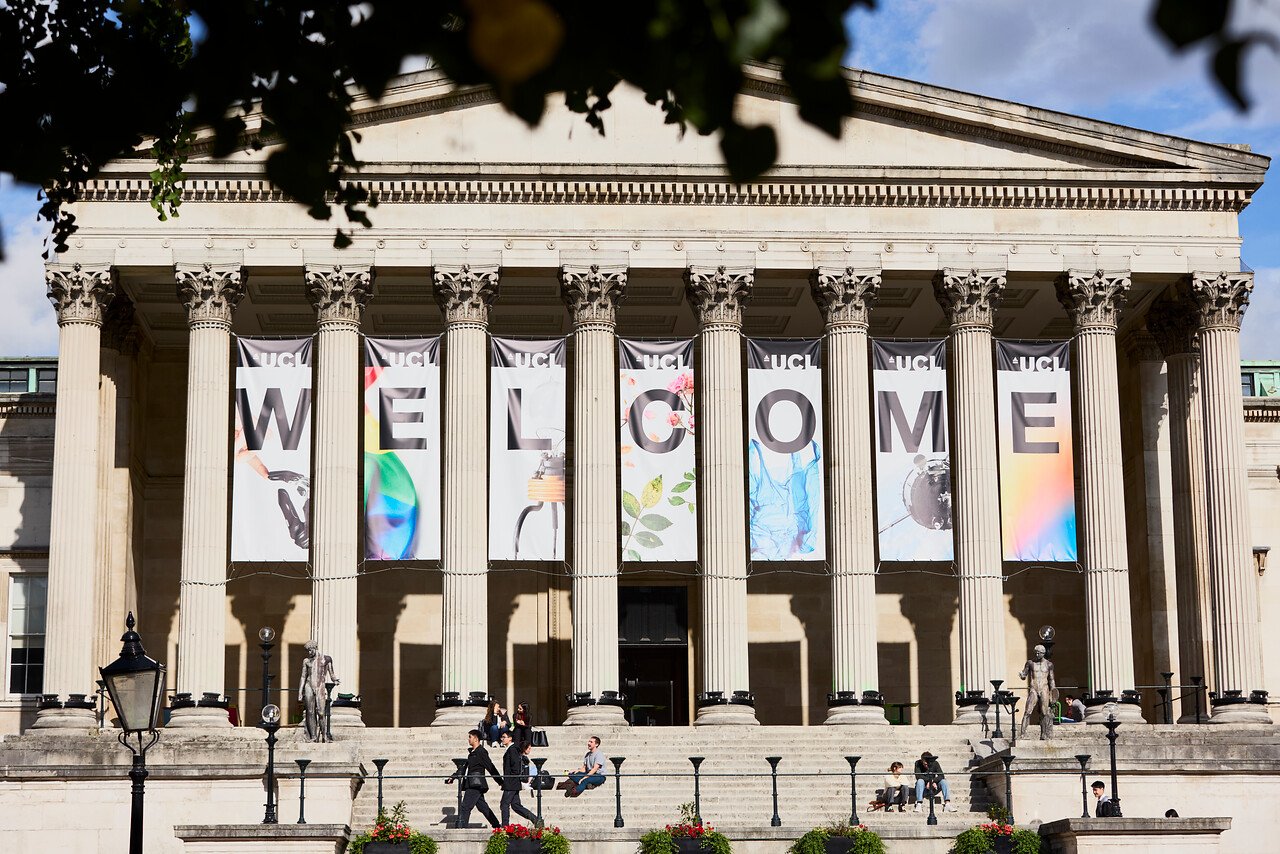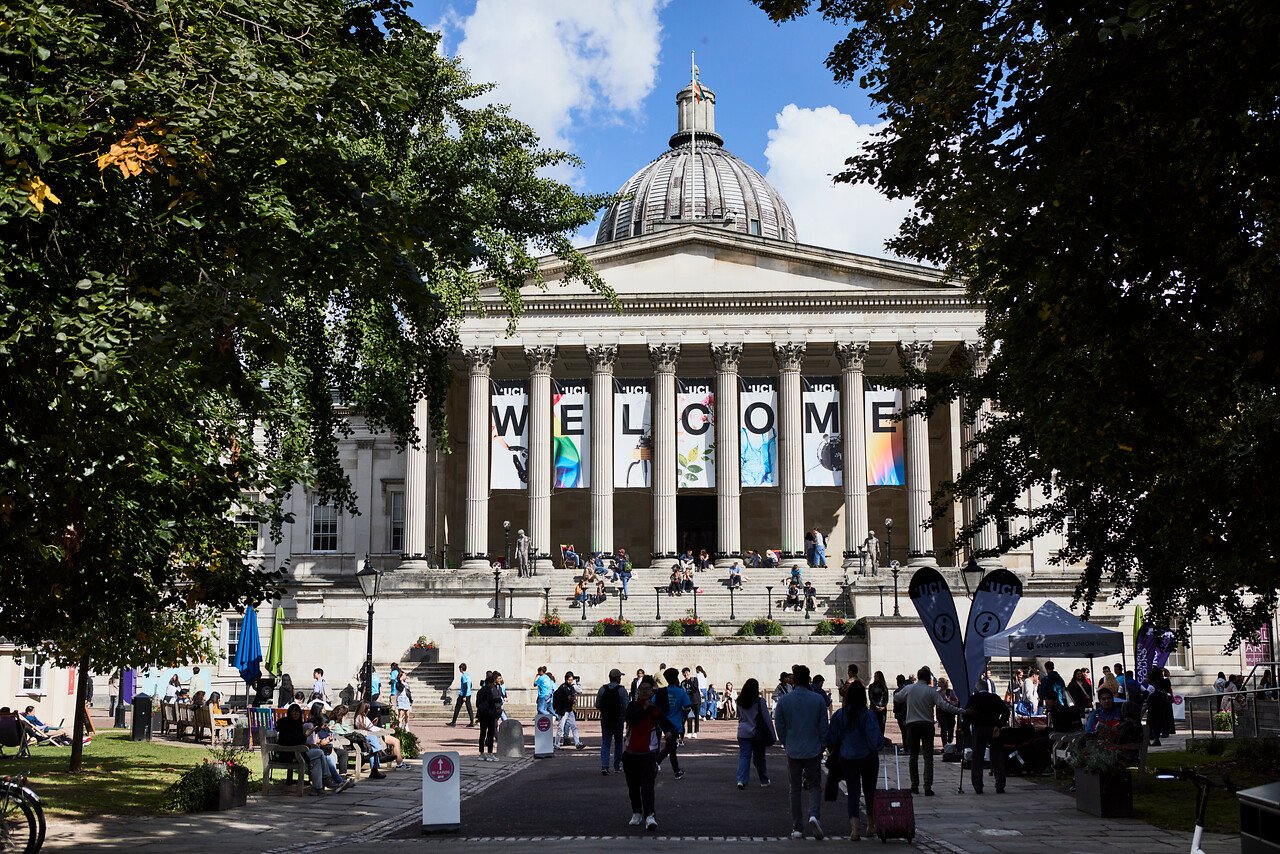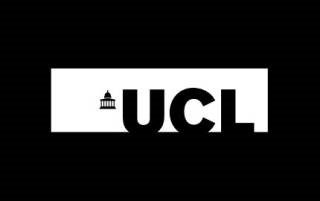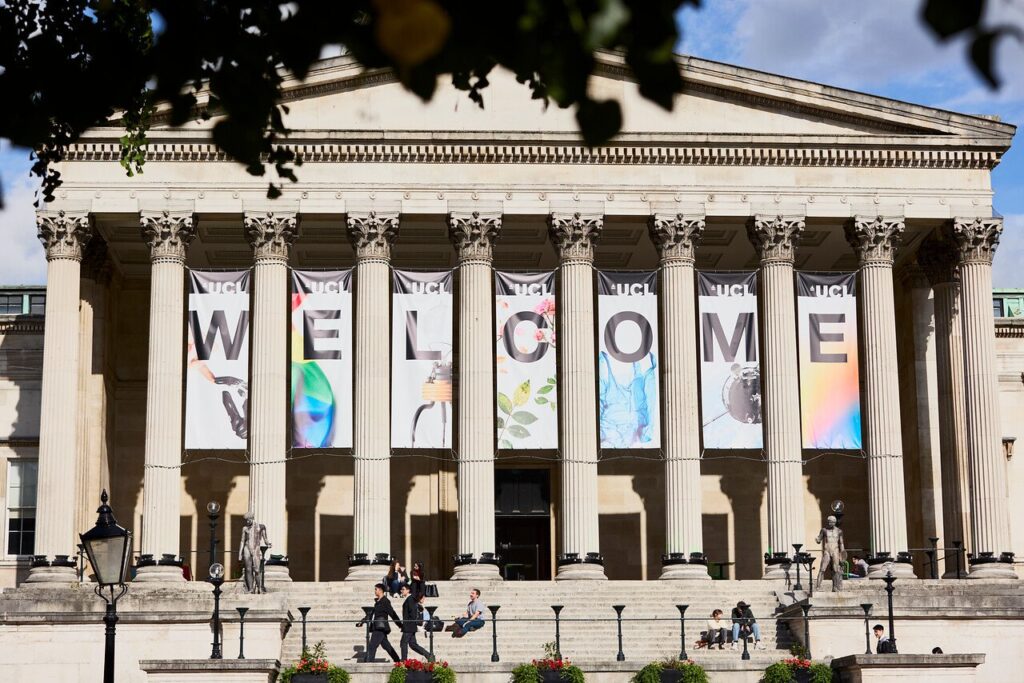Featured Programs
The program offers a wide combination of specialist modules from across UCL and an interdisciplinary Core taught by the Arts and Sciences department. The Core modules enable you to acquire the skills and concepts you will need to work effectively across multiple disciplines. The programme links traditional UCL subjects in new ways, and explores the conceptual and methodological differences between arts, social science and science subjects.
You will study a modern foreign language throughout your degree and may gain work experience through an internship chosen to integrate your studies with your future employment aspirations. Possible internships include businesses, non-governmental organisations (NGOs) and charities. Our students have had internships with a wide range of employers, including: Accenture, Disney, Goldman Sachs, The Met Office, Google, The Victoria and Albert Museum, Norton Rose Fulbright, HSBC, the United Nations, the Welcome Trust, Cancer Research UK and many other organisations and businesses.
You will choose a major and a minor pathway on application. Your pathways determine the subjects in which you will specialise. We offer an arts pathway, a social science pathway and two sciences pathways:
Cultures (Humanities and Arts): Anthropology, Creative Writing, Cultural Studies, Design and Visualisation, Drawing Methodology, Film and Documentary Film-Making, History, History of Art, Languages, Literature, Philosophy
Societies (Social Sciences): Archaeology, Economics, Geography, History, International Relations, Law, Management, Philosophy, Political Economy, Politics, Sociology
Health and Environment (Sciences): Anthropology, Biochemistry, Biological Sciences, Biomedicine, Environmental Sciences, Geography, Geology, Neuroscience, Pharmacology, Psychology
Sciences and Engineering (Sciences): Chemistry, Computer Science, Earth Sciences, Economics, Engineering, Mathematics, Physics
Core modules are designed to introduce you to biochemical engineering through lectures and the use of practical training facilities. Scenario-based learning activities will give you hands-on experience in a diverse range of fields, from tackling biopharmaceutical process development to evaluating the sustainability of biofuels.
The programme builds up to the Design Project in year three, where students apply the knowledge they have gained to a case study where they will be tasked with creating a process for the manufacture of a biopharmaceutical product, for example, facility design and techno-economic, including facility design and techno-economic evaluation.
The degree will be broken down into three main components:
Discipline-specific material in biochemical engineering;
Common engineering elements taught within the Faculty of Engineering Sciences;
Minor modules where you may choose from a range of subjects offered by the Faculty of Engineering Sciences.
Students register for Biochemical Engineering as the core discipline but also engage in activities spanning departments via the UCL Integrated Engineering Programme. Our degrees encourage professional development, emphasising design and challenging students to apply knowledge to complex problems.
UCL's BA Creative Arts and Humanities is a bold and dynamic interdisciplinary undergraduate degree, uniquely bringing together the theory, practice and wider application of creative writing, film and moving image and performance. The course is the first of its kind in the UK.
UCL's BA Creative Arts and Humanities is an interdisciplinary degree that will enable you to develop both your creative and critical skills, focusing on the role of narrative across three forms of creative practice:
Writing: narratives for paper, screen and the digital sphere in fiction and non-fiction genres.
Moving image: making narratives for screen, both fictional and documentary, from static images, storyboards, texts and scripts, to filming, final edit and display.
Performance: working with voice, body and movement to communicate ideas and emotions through performance for stage, film and digital media.
Working with academics as well as creative professionals, you will develop your knowledge and critical understanding of these modes of creative practice in historical, contemporary and future-facing contexts. You will also develop your own creative skills and explore what creativity means in different contexts and how it can be harnessed for meaningful impact in society.
The degree will encourage you to ground your creative expression in practical engagement, with audiences, with communities and with different organisations or employers. You will learn the skills of collaboration, learning how to create with and for others, and develop a range of skills that can be applied across a range of roles and sectors.
Based at our new campus in Stratford, UCL East, you will be part of a community of students studying interdisciplinary degrees in both arts and sciences subjects that are focused on creating, designing and making, with a strong emphasis on active engagement with the world to effect change.
History, politics and economics are brought to life in the exciting context of Russia and Eastern Europe, and combine some of the most important approaches for understanding the social, cultural, economic and political world around us. Students on this programme will develop skills essential for a wide range of future careers and activities, whilst having flexibility to specialise in disciplines as study progresses.
The History, Politics and Economics BA is carefully structured to give all students a solid foundation in each of the three subject pathways, while promoting increasing specialisation as the degree progresses. Students will choose two specialist disciplines in year two and one specialist discipline in the final year, including a research dissertation. This programme structure enables students to tailor their studies to their evolving interests, while also encouraging them to explore the interface between history, economics and politics in years two and three.
The programme will involve the acquisition of knowledge concerning the histories, economies and societies of the wider European region. It will do so with particular reference to Central and Eastern Europe, Russia and the post-Soviet world.
By seeking to understand this area from the vantage point of its global interconnectedness and significance, this programme will foster perspectives which are global in their reach.
Linguistics is the study of the capacity to use language. At UCL, students investigate the sound patterns (Phonetics and Phonology) and grammatical structures (Syntax) of the world's languages, and how we create and use meaningful expressions (Semantics and Pragmatics). Students on our programmes can explore a range of topics including language acquisition and processing, multilingualism, sociolinguistics, language evolution, and animal communication.
The Linguistics BA and Experimental Linguistics BSc share many core elements on which to build your linguistic education. In the first year of the BA, your modules are all compulsory, providing a broad foundation in linguistics and helping you assess where your own interests and strengths lie. In addition to compulsory modules in core areas of semantics, pragmatics, phonetics, phonology and syntax, you will also take a module in language acquisition.
In the second year, you take four intermediate modules covering the core areas of linguistics. You will also take four elective modules from a substantial pool offered by the department, though two of them can alternatively be taken outside the department.
Your undergraduate dissertation is the main focus of year three, working with an academic supervisor to develop an original piece of research on a topic of your choice. In addition you will take three advanced modules from the core areas of linguistics, one intermediate or advanced module offered in any area of linguistics, and two further elective modules, for which you also may choose modules from outside the department.
For the elective modules you take in years two and three, many students choose to take language courses taught by the UCL Centre for Languages & International Education or modules taught elsewhere in the Division of Psychology and Languages Sciences.
This BSc is designed to introduce students to a variety of scientific disciplines across the biosciences. The interdisciplinary nature of the programme means that the areas covered include anatomy, cell biology, developmental biology, genetics, immunology and infection, neuroscience, pharmacology, physiology and psychology.
In the first year all modules are mandatory and are designed to give you a firm foundation on the basis of which you can make an informed choice for later years. The modules cover topics in, e.g., anatomy, cellular and molecular biology, chemistry, genetics, pharmacology and physiology.
If you find that your interest becomes focused on one specific subject area after your first year, then you can apply to transfer to a specialist degree programme.
If you wish to remain with the Biomedical Sciences programme, the second year offers five streams of study.
In your third year, you will undertake a research project under the supervision of a staff member in conjunction with a research group in one of the faculty's departments or within UCL's biomedical institutes. You will also select from an extensive range of options in your chosen stream of study.
UCL is a diverse community with the freedom to challenge and think differently.
Our community of more than 50,000 students from 150 countries and over 12,500 staff pursues academic excellence, breaks boundaries and makes a positive impact on real world problems. We are consistently ranked among the top 10 universities in the world and are one of only a handful of institutions rated as having the strongest academic reputation and the broadest research impact.
We have a progressive and integrated approach to our teaching and research – championing innovation, creativity and cross-disciplinary working. We teach our students how to think, not what to think, and see them as partners, collaborators and contributors.
For almost 200 years, we are proud to have opened higher education to students from a wide range of backgrounds and to change the way we create and share knowledge. We were the first in England to welcome women to university education and that courageous attitude and disruptive spirit is still alive today.
University Stats

Entry Requirements
One of the following will be considered:
• Between three to five AP subjects with scores of 5 taken in the final three years of high school
• Between two to four AP subjects with scores of 5, plus the SAT or ACT, taken in the final three years of high school
• 34-40 IB points
• The successful completion of one year of study at a recognised US university, Community or Junior College, with an overall CGPA of 3.3/4.0 (equivalent to a 2.1) may also be considered
You can find the exact entry requirements for all our courses on our undergraduate prospectus.
Contact UCL, University College London



